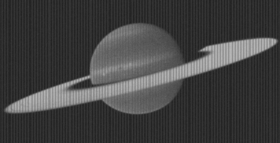Vanaheim: Difference between revisions
No edit summary |
mNo edit summary |
||
| Line 24: | Line 24: | ||
| satellites = ? |
| satellites = ? |
||
| allsatellites = |
| allsatellites = |
||
| − | | mean_radius = 7.18 |
+ | | mean_radius = 7.18 R<sub>ᛇ</sub> |
| equatorial_radius = |
| equatorial_radius = |
||
| polar_radius = |
| polar_radius = |
||
| Line 31: | Line 31: | ||
| surface_area = |
| surface_area = |
||
| volume = |
| volume = |
||
| − | | mass = 566 |
+ | | mass = 566 M<sub>ᛇ</sub> |
| density = |
| density = |
||
| surface_grav = |
| surface_grav = |
||
Revision as of 05:05, 11 July 2023
 Photo of Vanaheim taken by X in X CY | |||||||||||||
| Designations | |||||||||||||
|---|---|---|---|---|---|---|---|---|---|---|---|---|---|
Named after | Vanaheimr | ||||||||||||
| Orbital characteristics | |||||||||||||
| Aphelion | 4.15 AU | ||||||||||||
| Perihelion | 4.10 AU | ||||||||||||
| 4.1087 AU | |||||||||||||
| Eccentricity | 0.0119 | ||||||||||||
| 3190 Earth days | |||||||||||||
| Inclination | 2.38° | ||||||||||||
| Known satellites | ? | ||||||||||||
| Physical characteristics | |||||||||||||
Mean radius | 7.18 Rᛇ | ||||||||||||
| Mass | 566 Mᛇ | ||||||||||||
Sidereal rotation period | 0.4913 d (11.79h) | ||||||||||||
| 27.2° | |||||||||||||
| |||||||||||||
| Atmosphere | |||||||||||||
Vanaheim is the fourth planet from Yggdrasil and the largest planet in the Yggdrasil system. It is a gas giant with a mass over 500 times that of Jotunnheim, and over 7 times its radius. The interior of Vanaheim is believed to contain a rocky core, surrounded by dense layers of liquid hydrogen and helium, with a gaseous outer layer composed of iodine and argon, giving the planet a distinct purplish tint. Vanaheim also possesses a large and intricate ring system that is easily visible with telescopic equipment. Vanaheim has been observed by various cultures throughout Jotunnheim since ancient times, and has been viewed as an important astrological object by several different cultures. Vanaheim also has an extensive system of moons, numbering X and possibly more. The five largest moons are X, X, X, X, and X.